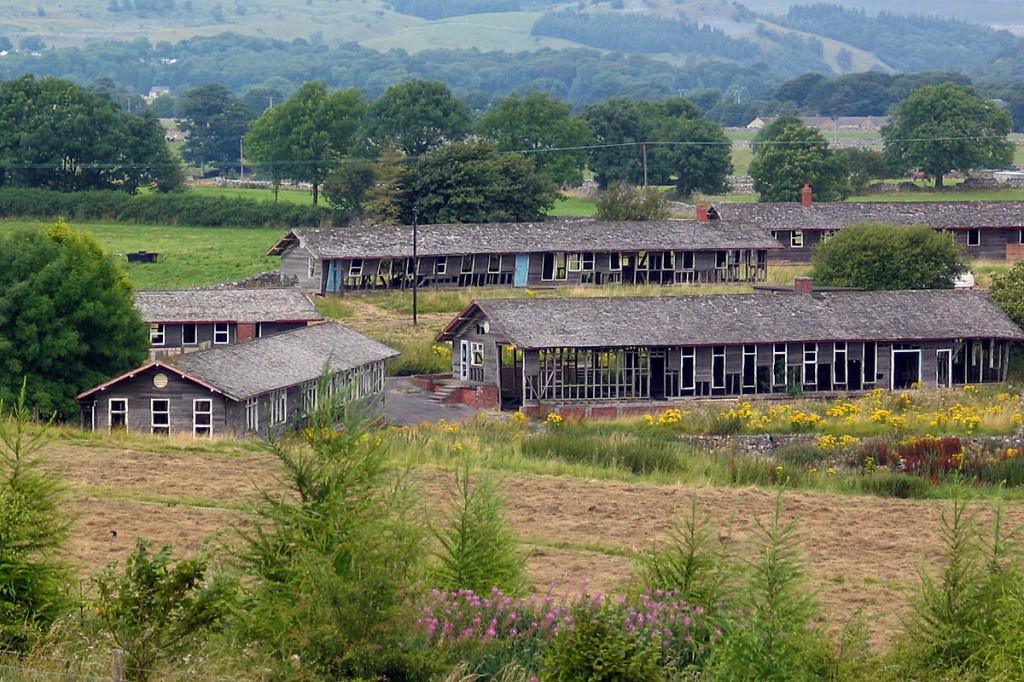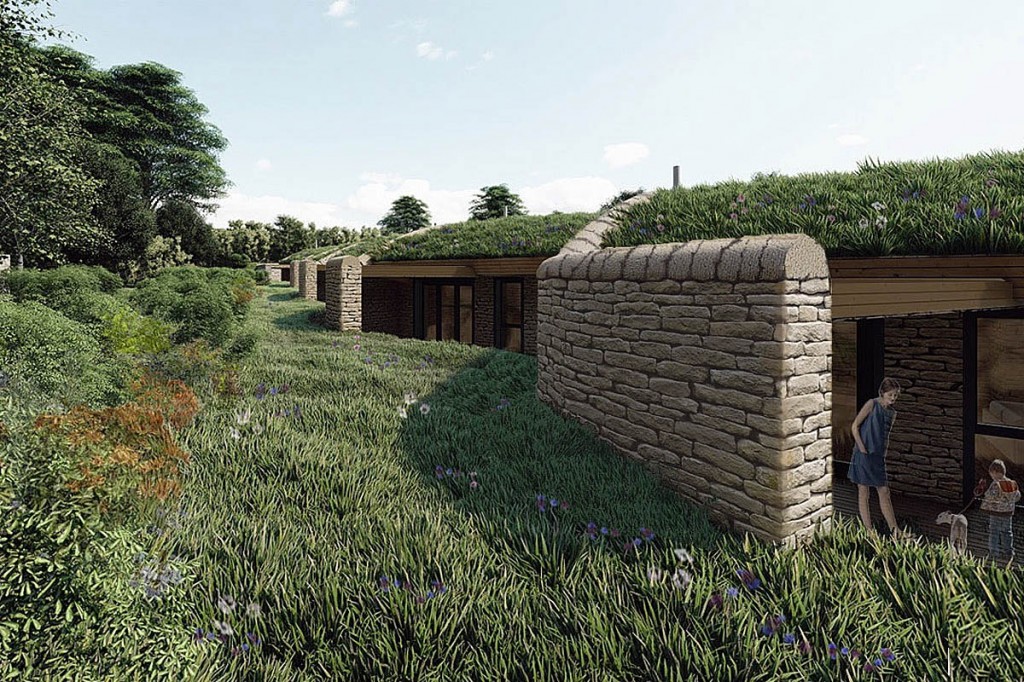A derelict Second World War camp could be turned into an upmarket ‘green’ hotel under plans approved by Yorkshire Dales bosses.
Natural Land proposes to turn the site at Linton, in Wharfedale, into a hospitality site that includes a spa, gym, bar, restaurant and underground car park.
A planner said the development would be aimed at ‘higher value spending visitors’ and has the highest-possible sustainability credentials. Plans include a curved wildflower and grass roof emulating the curve of the land.
Linton Camp was built by the National Camps Corporation in 1939 to house evacuees. It accommodated evacuees from Bradford and Leeds whose fathers were away in the forces and whose mothers were often doing shift work in the mills or munitions factories. It has lain derelict for more than 30 years.
The authority’s planning committee approved the scheme on Tuesday. Members heard the plans would provide a high-quality development and secure a significant level of employment and visitor spend in the local economy.
The authority also gave the green light for an agricultural diversification scheme at Gam Farm in Grassington for an open farm visitor attraction, an agricultural museum and a whisky distillery and ancillary tearoom. The applicant Chris Wray told the committee that he ran the largest herd of northern dairy shorthorns in the country, as well as other rare breeds, and that the development would bring significant local employment opportunities.
The two approvals followed planning committee’s decision in August to support Craven District Council’s plan to create business units on the former Craven Limeworks site at Langcliffe Quarry near Settle.
Member champion for development management at the Yorkshire Dales National Park Authority Jim Munday said: “I hope the decisions we’ve made on Linton Camp and Gam Farm, as well as Langcliffe Quarry, will help fuel a green economic recovery in Craven.
“The design for the Linton Camp hotel is impressively innovative and sustainable and comes with a plan to create wet meadows, a wildlife pond and a purpose built barn for bats and barn owls.
“The developments will provide careers that will attract younger, working-age people to come to live in the national park.
“It should be stressed that like Langcliffe Quarry, Linton Camp was first earmarked for a new economic use in the local plan in 2016. They are both sensitive sites that required similarly sensitive development.
“Extensive discussions took place with the applicant to refine and improve the application. It shows that the planning system we have is working well. I wish Natural Land every success with its scheme.”
Natural Land has said it anticipates there will be 40 full-time roles at the new hotel.
Strategic manager for planning and regeneration at Craven District Council David Smurthwaite said the council regarded the Linton Camp development as a priority scheme.
“It has been our hope for many years that a positive economic use could be found for the former Linton Camp site, in particular one which will have an economic benefit across the wider southern Yorkshire Dales.
“The redevelopment of the site is regarded as a priority scheme in the programme of work we are doing with the national park authority to try to attract younger, working age people. Both sites will create more jobs within the national park, so reducing the need for residents to travel to seek employment.
“We are particularly pleased that the proposed hotel aims at higher value spending visitors as opposed to a mass tourism model. This approach is reflected in the modest scale of the development that in turn allows it to fit in with the surrounding environment.”
The National Camps Corporation constructed about 30 camps in rural locations around England to house evacuees from nearby cities. Following the war Linton Camp was used to provide residential education in a healthy environment for inner city children by the National Camps Corporation. T
In 1946 the National Camps Corporation was wound down and in 1957 Bradford City Council bought the site and continued to use it as a residential school until its closure in May 1986.


CJ
09 October 2020I have always wondered on the history of this place over the 40 years or so I have passed that way. It always appeared to have a sinister look about it, with the dereliction and keep out signs etc. I am not in favour of the hotel but I am glad it’s going to be put into something useful
P.Dyson
17 June 2021my ex missed this school so much, here time there was the best days of her younger life. I always wanted to go visit there with her but never got the chance so I feel a link there to now it numbs my mind why no one as taken the chance to save some of it and still build there keep old and new together then everyone's happy its then a two edge blade old meets new hotel under ground & wartime school then for naughty kids, kids treat different to know fault of there own to take the sad and happy and bond a new era of caring about people like them, people like me who cried out for help but never understood, god bless.